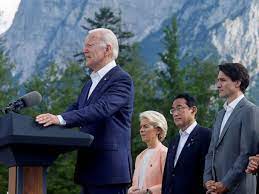
Breaking News
 Green Rush Reloaded: Pot Stocks Soar On Trump Push For Rescheduling
Green Rush Reloaded: Pot Stocks Soar On Trump Push For Rescheduling
 Nuclear Reactors For Investors
Nuclear Reactors For Investors
 Everyone Except Zelensky 'Loved' My Plan, Trump Says, Warning Of WW3
Everyone Except Zelensky 'Loved' My Plan, Trump Says, Warning Of WW3
 Israel Used Palantir Technology In Its 2024 Lebanon Pager Attack, Book Claims
Israel Used Palantir Technology In Its 2024 Lebanon Pager Attack, Book Claims
Top Tech News
 Build a Greenhouse HEATER that Lasts 10-15 DAYS!
Build a Greenhouse HEATER that Lasts 10-15 DAYS!
 Look at the genius idea he came up with using this tank that nobody wanted
Look at the genius idea he came up with using this tank that nobody wanted
 Latest Comet 3I Atlas Anomolies Like the Impossible 600,000 Mile Long Sunward Tail
Latest Comet 3I Atlas Anomolies Like the Impossible 600,000 Mile Long Sunward Tail
 Tesla Just Opened Its Biggest Supercharger Station Ever--And It's Powered By Solar And Batteries
Tesla Just Opened Its Biggest Supercharger Station Ever--And It's Powered By Solar And Batteries
 Your body already knows how to regrow limbs. We just haven't figured out how to turn it on yet.
Your body already knows how to regrow limbs. We just haven't figured out how to turn it on yet.
 We've wiretapped the gut-brain hotline to decode signals driving disease
We've wiretapped the gut-brain hotline to decode signals driving disease
 3D-printable concrete alternative hardens in three days, not four weeks
3D-printable concrete alternative hardens in three days, not four weeks
 Could satellite-beaming planes and airships make SpaceX's Starlink obsolete?
Could satellite-beaming planes and airships make SpaceX's Starlink obsolete?
G7 Unveils $600 Billion Global Infrastructure Plan To Counter China's "Belt And Road"

G-7 leaders from the US, Canada, Germany, Italy, Japan, and the European Union gathered at a summit in Bavaria, Germany, on Sunday and unveiled the Partnership for Global Infrastructure and Investment (PGII) that will "will deliver game-changing projects to close the infrastructure gap in developing countries, strengthen the global economy and supply chains, and advance U.S. national security," a White House press release read.
During the summit, Biden said the U.S. would deploy $200 billion in grants, federal funds, and private investment over five years for lower- and middle-income nations to boost infrastructure.
"I want to be clear. This isn't aid or charity. It's an investment that will deliver returns for everyone," Biden said. He added that it would allow countries to "see the concrete benefits of partnering with democracies."
Since its launch, Western officials have accused Beijing of pursuing "debt-trap diplomacy" by providing countries with financing to build infrastructure that benefits China more than the countries themselves.

 First totally synthetic human brain model has been realized
First totally synthetic human brain model has been realized Mach-23 potato gun to shoot satellites into space
Mach-23 potato gun to shoot satellites into space

